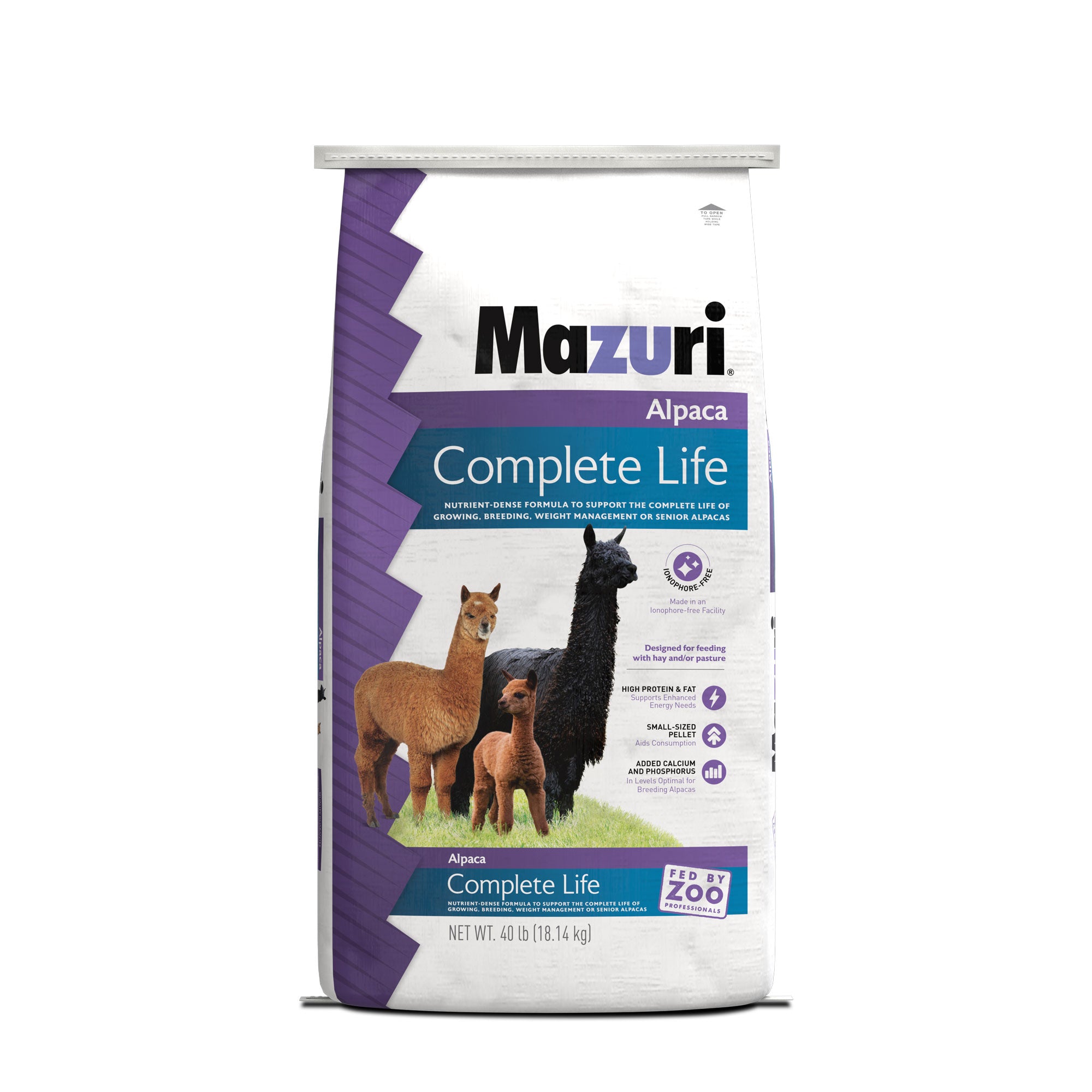Every exotic animal deserves the right nutrition
| Crude protein not less than Crude fat not less than Crude fiber not more than Starch not more than Ash not more than Calcium not less than Calcium not more than Phosphorus not less than Salt not less than Salt not more than Sodium not more thanOmega-3 Fatty Acids not less than Selenium not less than Selenium not more than Total Microorganisms not less than | 14.00% 6.00% 18.00% 8.00% 13.00% 2.00% 2.50% 1.50% 1.00% 1.50% 0.80% 0.75% |
(Lactobacillus acidophilus, Lactobacillus casei, Bifidobacterium thermophilum, Enterococcus faecium)*
*Contains a source of live (viable) naturally occurring microorganisms.
Ground Soybean Hulls, Wheat Middlings, Dehulled Soybean Meal, Dicalcium Phosphate, Dried Plain Beet Pulp, Cane Molasses, Soybean Oil, Lignin Sulfonate, Ground Flaxseed, Yeast Culture, Calcium Carbonate, Salt, DL-Alpha-Tocopherol Acetate (Vitamin E), Thiamine Mononitrate, Magnesium Oxide, Calcium Propionate (a preservative), Zinc Methionine Complex, Seaweed-Derived Calcium, Cholecalciferol (Vitamin D3), Artificial Flavor, Zinc Oxide, Manganese Sulfate, Dried Lactobacillus acidophilus Fermentation Product, Dried Lactobacillus casei Fermentation Product, Dried Bifidobacterium thermophilum Fermentation Product, Vitamin A Acetate, Choline Chloride, Nicotinic Acid, Dried Enterococcus faecium Fermentation Product, Selenium Yeast, L-Ascorbyl-2-Polyphosphate (Vitamin C), Pyridoxine Hydrochloride, d-Alpha Tocopheryl Acetate (Vitamin E), Preserved with Mixed Tocopherols, Rosemary Extract, Calcium Iodate, Manganous Oxide, Folic Acid, Citric Acid (a Preservative), Calcium Pantothenate, Ferrous Carbonate, Riboflavin Supplement, Copper Sulfate, Biotin, Vitamin B12 Supplement, Zinc Sulfate, Zinc Amino Acid Complex, Sodium Selenite, Manganese Amino Acid Complex, Copper Amino Acid Complex, Cobalt Glucoheptonate, Cobalt Carbonate.
- To be fed with free-choice grass hay or pasture. Feed alpacas 0.5% to 1% of their body weight daily.
- These feeding amounts are guidelines and should be adjusted based on environmental temperatures, body condition, level of activity or fleece production, and life stage; consult a nutritionist or veterinarian for guidance for individual animal needs.
- For females in early gestation, breeding males, or senior animals, feed at 0.5% of body weight (see table below).
- For late-gestation females, consider feeding 25% more Mazuri® Alpaca Complete Life.
- For lactating females, consider feeding 25% to 50% more Mazuri® Alpaca Complete Life.
- For weight management, start animals at 0.5% of body weight (lower end of amounts in chart), and, if body weight does not begin to increase in 4 – 6 weeks, increase in increments (25% additional food at a time), up to 1% of body weight.
Feeding Guide*

- Always provide plenty of fresh, clean water.
- Thoroughly wash feed and water bowls on a regular basis. It is always good practice to wash hands thoroughly after feeding and/or handling animals.
- This diet is not for human consumption.
Caution: Follow label directions: Feeding added selenium at levels in excess of 0.3 ppm in total diet is prohibited.
Do not feed to sheep due to high concentrations of supplemental copper.
Storage Conditions
For best results, reseal the bag between uses or store contents of open paper sack in container with sealing lid. Store in a cool (75⁰F/24⁰C or colder), dry (approximately 50% RH) location free from rodents and insects. Do not offer moldy or insect-infested feed to animals as it may result in illness, performance loss or death. Freezing will not harm the diet and may extend freshness. Use within 1 year of bag manufacturing or "Best if Used By" date.
Ask Our Experts
Get nutrition advice you can trust from experts who understand the unique nutritional needs and behaviors of your exotic animals.
Get Advice







